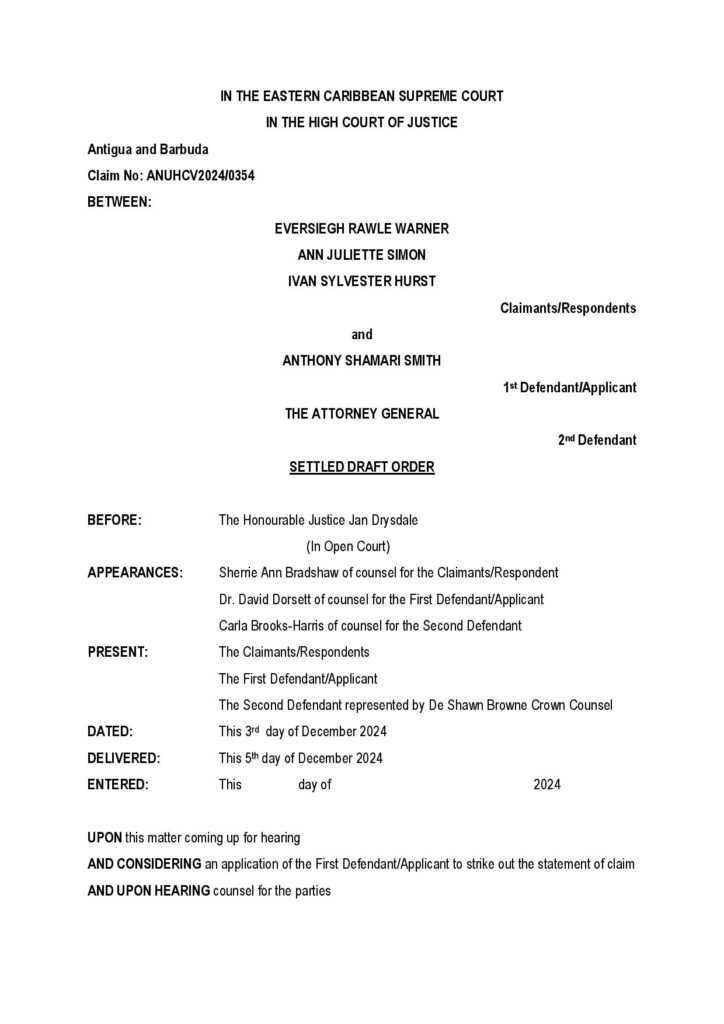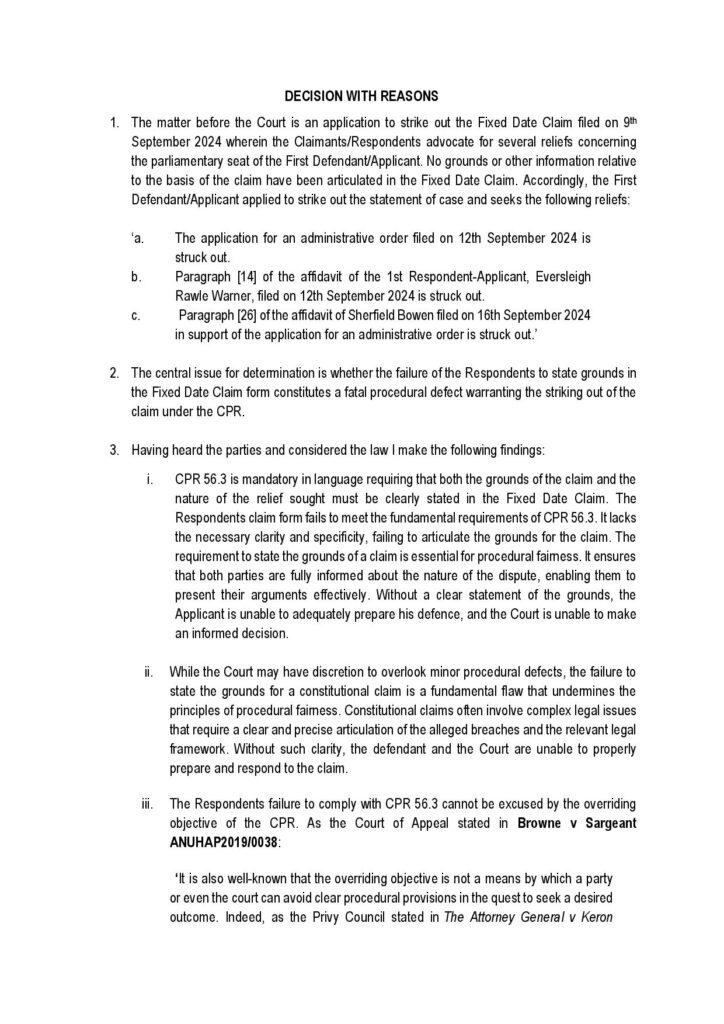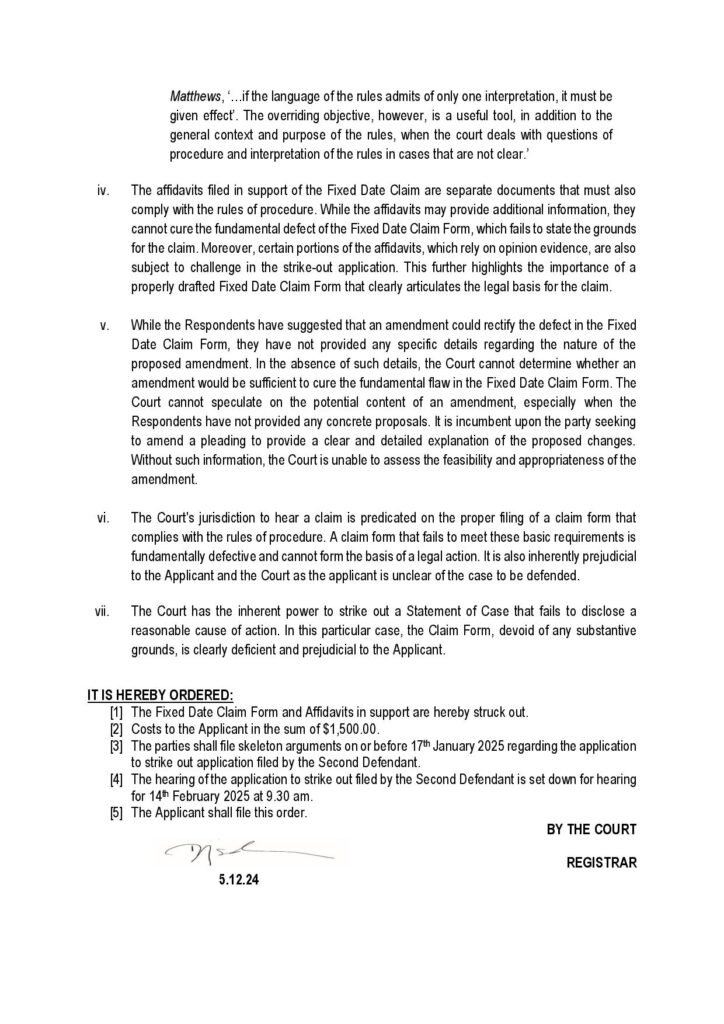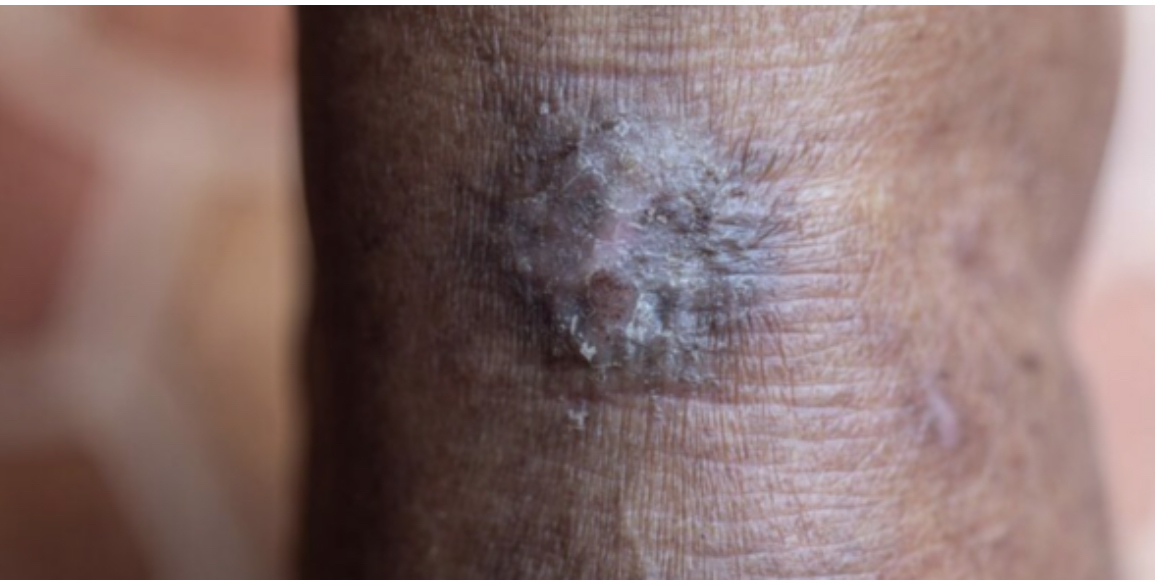FULL JUDGEMENT: The claim against Hon. Anthony Smith Violated Key Procedural Rules
 07 December 2024
07 December 2024



The High Court of Justice in Antigua and Barbuda struck out a claim against Member of Parliament Anthony Shamari Smith, ruling that the claimants failed to articulate the grounds of their case, violating key procedural rules.
Justice Jan Drysdale, delivering the judgment on December 5, 2024, underscored the importance of procedural fairness and clarity, particularly in cases involving constitutional claims.
The case, brought by Eversiegh Rawle Warner, Ann Juliette Simon, and Ivan Sylvester Hurst, sought to challenge Smith’s parliamentary seat as an independent.
However, the Fixed Date Claim Form filed on September 9, 2024, did not state the grounds for the claim or the alleged breaches. Justice Drysdale ruled that this omission violated Civil Procedure Rule (CPR) 56.3, which mandates that claims must clearly outline the grounds and relief sought.
In her ruling, Justice Drysdale stressed that procedural fairness is central to the justice system, ensuring that all parties are adequately informed and prepared. “The requirement to state the grounds of a claim is essential for procedural fairness,” she said.
“Without a clear statement of the grounds, the applicant is unable to adequately prepare his defense, and the court is unable to make an informed decision.”
The judge noted that constitutional claims often involve complex legal arguments that demand precise articulation of the issues at hand. “Failing to meet this standard undermines the principles of fairness and equality before the court,” Justice Drysdale remarked.
The claimants argued that affidavits filed in support of the claim could compensate for the deficiencies in the Fixed Date Claim Form. However, Justice Drysdale rejected this contention, stating that affidavits serve as supplementary evidence and cannot substitute for a properly drafted claim. She further criticized parts of the affidavits for containing opinion evidence, which was inadmissible in this context.
“The affidavits cannot cure the fundamental defect of the Fixed Date Claim Form,” the judge explained. “This document is the cornerstone of the claim, and its inadequacies render the entire case procedurally defective.”
The claimants also suggested that the procedural flaw could be rectified through an amendment to the claim form. However, Justice Drysdale found that they failed to provide concrete details or proposals for such an amendment. Without this specificity, the court could not assess whether an amendment would sufficiently address the defects.
“The court cannot speculate on the potential content of an amendment, especially when the respondents have not provided any concrete proposals,” Justice Drysdale said. “It is incumbent upon the party seeking to amend a pleading to provide a clear and detailed explanation of the proposed changes.”
Ultimately, the court ruled that the Fixed Date Claim Form and supporting affidavits were fundamentally defective and could not proceed. Justice Drysdale exercised the court’s inherent power to strike out cases that fail to disclose a reasonable cause of action. She also highlighted the prejudice caused to the defendant, who was left unclear about the case he needed to defend.
The court ordered the claim struck out and awarded costs of $1,500 to Smith. Justice Drysdale also set February 14, 2025, as the date for further hearings related to a separate application filed by the Attorney General.
By failing to clearly state the grounds of their claim, the claimants deprived both the defendant and the court of the ability to address the issues effectively.
Moreover, the judgment serves as a reminder that procedural defects cannot be overlooked or excused in the name of expediency. As Justice Drysdale noted, “The overriding objective of the CPR is not a means by which a party or the court can avoid clear procedural provisions in the quest to seek a desired outcome.”
For legal practitioners and claimants, this ruling highlights the importance of careful drafting and adherence to procedural requirements. It also underscores the judiciary’s commitment to upholding fairness and transparency, ensuring that all parties are given a fair opportunity to present their cases.
READ THE JUDGEMENT BELOW:
Warner-et-al-v-Smith-et-al-RULING-FINAL-approved-_241206_131413Download



Advertise with the mоѕt vіѕіtеd nеwѕ ѕіtе іn Antigua! We offer fully customizable and flexible digital marketing packages.Contact us at [email protected]
Related News

Expert Warns Trump’s Tariffs Could Raise Prices and Hurt Caribbean Economies

UWI Five Islands Campus Expansion to Begin First Phase in 2025

Ministry of Health Confirms Reports of Impetigo Cases in Antigua and Barbuda









